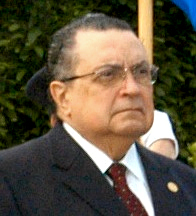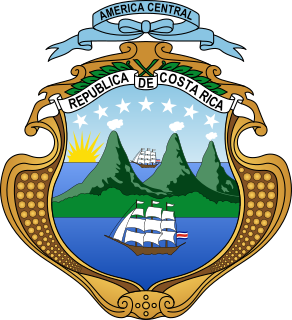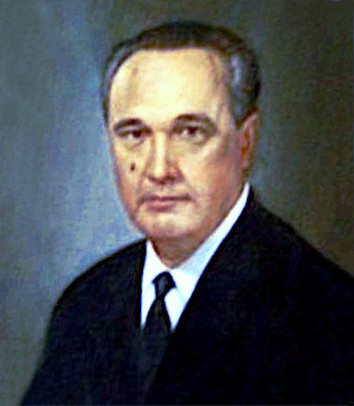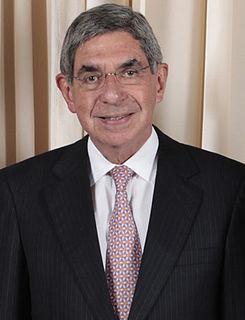| ||||||||||||||||||||
| ||||||||||||||||||||
 Map on the left shows the seats won by each party by province. The map on the right shows which party won the plurality in each province in both rounds of the Presidential election. | ||||||||||||||||||||
| ||||||||||||||||||||
 |
|---|
| This article is part of a series on the politics and government of Costa Rica |
Legislature |
|
General elections were held in Costa Rica on 3 February 2002. [1] For the first time in the country's history, no candidate in the presidential election passed the 40% threshold. [2] This meant a second round of voting had to be held on 7 April which saw Abel Pacheco of the Social Christian Unity Party defeat the National Liberation Party's Rolando Araya Monge. [3]

Costa Rica, officially the Republic of Costa Rica, is a country in Central America, bordered by Nicaragua to the north, the Caribbean Sea to the northeast, Panama to the southeast, the Pacific Ocean to the southwest, and Ecuador to the south of Cocos Island. It has a population of around 5 million in a land area of 51,060 square kilometers. An estimated 333,980 people live in the capital and largest city, San José with around 2 million people in the surrounding metropolitan area.

Abel Pacheco de la Espriella was president of Costa Rica between 2002 and 2006, representing the Social Christian Unity Party (Partido Unidad Social Cristiana – PUSC). He ran on a platform to continue free market reforms and to institute an austerity program, and was elected, in a second electoral round, with 58% of the vote in April 2002.

The Social Christian Unity Party is a centre-right political party in Costa Rica.
Contents
Many analysts consider this election the beginning of the end of Costa Rica’s decades-long two party system. [4] [5] [6] For the first time in many years alternative political forces become really relevant in the Parliament and the plenary had three large party groups; PUSC (19), PLN (17) and PAC (14). [7]

The National Liberation Party, nicknamed the verdiblancos, is a political party in Costa Rica. The party is a member of the Socialist International.

The Citizens' Action Party is a center-left political party in Costa Rica.
While PUSC won the presidential election and the majority in Congress, PLN became the primal opposition force in Parliament. Centre-left PAC with a progressive proposal seem to had gravely affected traditional third forces at the left of the spectrum like Democratic Force that fail to win any seat on that election even when for some years was Costa Rica’s main third party. [7] Right-wing Libertarian Movement also increases its representation from one to six deputies [7] while conservative [8] Costa Rican Renewal Party won one seat as usual. [7]
Progressivism is the support for or advocacy for improvement of society by reform. As a philosophy, it is based on the idea of progress, which asserts that advancements in science, technology, economic development and social organization are vital to the improvement of the human condition.
Democratic Force nicknamed “El Naranjazo” was a political party in Costa Rica.

The Libertarian Movement Party is a political party based on classical liberalism in Costa Rica. It was founded in May 1994. After an important protagonism during early 2000s with its perennial nominee Otto Guevara among the main candidates and reaching third place in 2006 and 2010, it was affected by several corruption scandals and lack of funds, the party gradually suffered a debacle in 2014 ending in fourth on the presidential ticket, and fifth in Parliament. Later losing all its mayors in the mid-term local election of 2016, to finally having its worst results in 2018 with Guevara's candidacy reaching only 1% of support and losing all seats in Congress.
Despite the close contest, voter turnout was only 68.8% on 3 February the lowest since the 1958 elections. For the second round of the presidential elections it fell to 60.2%, the lowest since 1949. [9]































